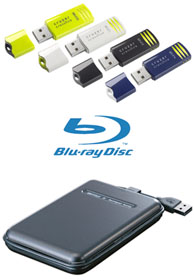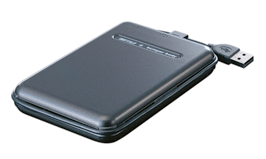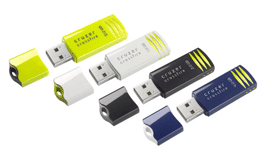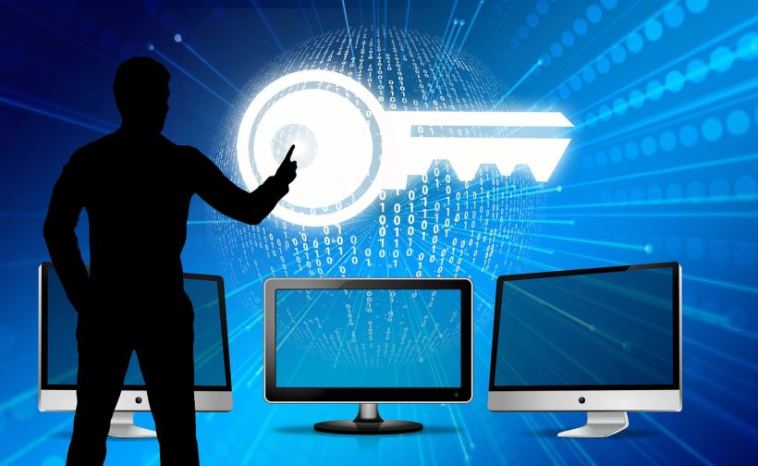- Like
- SHARE
- Digg
- Del
- Tumblr
- VKontakte
- Flattr
- Buffer
- Love This
- Save
- Odnoklassniki
- Meneame
- Blogger
- Amazon
- Yahoo Mail
- Gmail
- AOL
- Newsvine
- HackerNews
- Evernote
- MySpace
- Mail.ru
- Viadeo
- Line
- Comments
- Yummly
- SMS
- Viber
- Telegram
- JOIN
- Skype
- Facebook Messenger
- Kakao
- LiveJournal
- Yammer
- Edgar
- Fintel
- Mix
- Instapaper
- Copy Link
Hard Drive Backup Solutions: Tips & Recommendations
 Performing a hard drive backup is one of the most important steps you can take to protect your important business or personal files. Unfortunately though, even in today’s digital age, individuals often overlook this critical yet simple maintenance step.
Performing a hard drive backup is one of the most important steps you can take to protect your important business or personal files. Unfortunately though, even in today’s digital age, individuals often overlook this critical yet simple maintenance step.
Many computer users store some of their most valuable data electronically yet for some reason or another, a routine hard drive backup solution is missing in their day to day digital lifestyle.
Ask yourself this, would it be a pain for you to lose your personal computer files at this very moment? Think about digital family photos, years worth of downloaded music you’ve purchased, family videos and other cherished data items.
Similar to the tangible items in our lives that we value so much, data also can easily be lost or destroyed so it only makes sense to purchase a backup hard drive or other backup solution and adapt a hard drive backup routine in our digital lives.
Fortunately, adapting a hard drive backup routine is easy today for there are a ton of backup options available. Data can be stored in the cloud, on USB flash drives, Compact Discs (CDs), Digital Versatile Discs (DVDs), magnetic tapes, floppy disks, network storage devices, online backup services, and internal or external USB hard drives among other backup options.
Now if you’ve already succumbed to a failed hard drive, take a deep breath. Thankfully, many hard drive recovery options are available to potentially recover your precious files. Once such solution is Yodot hard drive recovery software. In many cases, you are going to be able to recover your files, but nothing protects your data like backing it up in the first place of course.
For those of you who want an added layer of security you can even encrypt data to keep it safe from hackers or other prying eyes. We like to think of data encryption as locking up your data in a vault similar to the way you would lock up your hard earned cash in a bank. Using the most specialized encryption algorithms it is quite literally impossible for an unwanted user to crack the encryption and access your data.
As you see getting on board with a hard drive backup solution is a very important piece you definitely don’t want to overlook. If you don’t currently back up hard drive data on a backup hard drive or other backup solution currently, or you simply want to learn more about data backup, we highly recommend you continue reading for in this guide we are going to dive deeper into hard drive backup solutions, backup software, backup types and more.
Choosing A Hard Drive Backup Solution
Choosing a hard drive data recovery backup method for your data is one of the first things to consider before adapting a hard drive backup routine in your digital lifestyle. Lucky for all of us digital pioneers, there are a ton of options out there and cost is as low as it’s ever been.
Internal And External Hard Drives:
 One of the most popular and cost effective solutions available for hard drive backup is another hard drive.
One of the most popular and cost effective solutions available for hard drive backup is another hard drive.
Hard drives work very well for data backup and they are very cheap, offering a best cost per megabyte (MB) compared to other data backup solutions.
Internal hard drives work well and they are cheaper than external USB hard drives. On the other hand external hard drives are more popular because they offer added conveniences such as being able to be store the drive securely away under lock and key, the ability to use it on multiple computers, and you can even transport the drive to another location if needed.
The added benefits of an external hard drive backup solution are great, be cautious however when transporting an external hard drive if it is the sole backup of your data for if you lose the drive you also of course lose your precious data. We’ve heard all too often of people losing a backup hard drive. It never hurts to have your data backed up in two locations regardless of any chosen backup solution, so definitely take note of this if you transport your external backup hard drive from place to place.
When choosing an external or internal hard drive backup solution look for one that offers a low cost per megabyte (MB), additionally we also recommend a 7200RPM drive because of the added speed, especially important if you routinely backup large amounts of data. For external hard drives we prefer the USB interface because of its compatibility, though a Firewire hard drive works well too especially for Macintosh (MAC) computers. Find one with both interfaces and you are golden, though do expect to pay a premium.
Another thing you may see when shopping for a hard drive backup solution is bundled software. Some drives come bundled with their own backup software and some external drives also offer what they call one touch backup capability along with the software. One touch hard drive backup capability pretty much uses the bundled software that you install on your PC and configure in combination with a hardware button on the external backup hard drive to invoke a backup. This allows you to initiate a backup without using the software interface on your PC. By simply pressing the button on the drive it sends a signal to the backup software running on your PC telling it to backup what you’ve specified in the software.
Of course bundled software and/or one touch backup capability isn’t totally necessary when shopping for an external hard drive backup solution. While it may make you more inclined to backup hard drive data, most software offers automatic incremental backup capability anyways. Plus there are plenty of free software backup solutions available, including those that come pre-bundled with modern operating systems such as Windows 7 and Vista.
Data Backup Software:
Picking up hard drive backup software is pretty easy these days, there are a ton of software solutions available. Many external hard drives come pre-bundled with software, though if not, modern operating systems such as Windows 7 and Windows Vista offer their own hard drive backup software. There is also a ton of free and available for purchase hard drive backup software packages to choose from. Check out Download.com for a free or trial data backup solution.
When browsing for hard drive backup software pickup a package that offers automatic, full and incremental backup options at the minimum. Automatic backups are perfect for individuals who aren’t super proactive with data backup since you can set it and forget it. Full backup and incremental backup capability gives you added flexibility since you are going to backup hard drive data routinely.
Either way any backup is better than no backup, so if you prefer to not use backup software at the minimum you should perform manual data backups. Just make sure you perform backups often for without backup software many times we tend to not backup our data very frequently.
USB Flash Drives And Flash Media:
 Flash media make nice hard drive backup solutions for smaller amounts of data. They are also wonderful as a second layer backup solution to an external hard drive backup or CD/DVD/Blue-ray disc media backup.
Flash media make nice hard drive backup solutions for smaller amounts of data. They are also wonderful as a second layer backup solution to an external hard drive backup or CD/DVD/Blue-ray disc media backup.
Flash media devices include the hugely popular USB Flash drive also commonly called thumb drive, and the numerous digital flash memory cards available including Compact Flash, Secure Digital, Sony Memory Stick and more.
Because flash media is cheap and quick, we personally use USB flash drives to backup some of our core data as a secondary backup to our external hard drives. As a primary hard drive backup USB flash drives and flash media aren’t the best solution for they can easily be lost or damaged but as a secondary backup layer they are absolutely great.
Pretty much every computer on the planet can utilize a USB flash drive and most computers today have a flash media multi reader built in so they can also accept pretty much any flash memory card on the market. Flash media is used in digital cameras primarily, though like a USB flash drive it can just as easily be used to store data.
For those who store confidential files, definitely look at purchasing one of the many so called secured/encrypted USB flash drives available. One that we’ve used personally is the state of the art hardware encrypted Ironkey USB flash drive and we’ve also used secured flash drives from SanDisk and Lexar. Secured drives offer industry standard encryption capability such as Advanced Encryption Standard (AES) 256-bit software or hardware encryption.
Lots of manufactures market secured USB flash drives so definitely look at this as an option because the added portability with thumb drives always equal more risk of data compromise. In fact, secured/encrypted USB keys are used standard across the globe in many organizations to backup hard drive data. Security encrypted USB flash drives are often used in the government sector and by businesses because they constantly transport highly confidential data from place to place.
Incorporating the same level of security that the government trusts to your own personal life won’t cost too much more over standard non-encrypted options so it may be the best bet to pay the slight premium since it can prevent data compromise potentially leading to identity theft if say confidential items were stored on the device, etc.
Online Data Backup Services (Cloud Solutions):
 Online data backup services such as Mozy, Carbonite, Google Drive, and others have gained a lot of popularity over the years.
Online data backup services such as Mozy, Carbonite, Google Drive, and others have gained a lot of popularity over the years.
While many individuals still may not feel secure about storing their data across the Internet with a third party, it’s really not too much different than storing your credit card information with an online retailer or accessing your banking information online, and it’s definitely more secure than say storing family photos on Facebook or Myspace.
Online data backup companies typically encrypt your files multiple times before backing them up securely on their servers and they also use the same encryption techniques that banks use and files remain encrypted at their secure data centers with only you having the ability to see the files.
If you are still not confident about storing sensitive information with an online data backup provider, at the minimum you can store important yet less secure items such as family photos, music, videos, etc. In the event that you have a fire, flood, or other disaster at least your precious data is going to be safe, and since third parties typically have extensive backup solutions in place to protect your data this also adds some additional piece of mind.
Online data backup services also give you the flexibility to access your data from any computer at anytime with an Internet connection. Online services also can save you money if you are a small business owner or individual with a lot of data since you can forgo expensive data backup hardware.
As you see an online data backup provider may actually be a better option than you may have originally thought. If you are thinking of backing up your data online but are still somewhat hesitant, we’ve provided some basic guidelines below.
We recommend that you choose a few companies, compare features and price, and finally give each company a call to chat with someone. A company’s customer service department should be knowledgeable, helpful and courteous. Also perform online research, and do as much as you feel necessary.
Following these recommendations can help you get a feel for the different companies standards plus performing these steps will also help boost your confidence if you are even still somewhat hesitant about utilizing an online data backup provider.
CD, DVD, and Blue-ray Media:
 To backup hard drive data on a traditional CD/DVD disc or newer Blue-ray discs is another potential backup option. Although, this form of backup media is not as popular these days due to modern backup solutions.
To backup hard drive data on a traditional CD/DVD disc or newer Blue-ray discs is another potential backup option. Although, this form of backup media is not as popular these days due to modern backup solutions.
Typically when you backup hard drive data on these types of media you are going to use what is referred to as a Write Once Read Many (WROM) disc. Basically once you write your data on the disc it is permanent.
This permanency is what makes CD/DVD/Blue-ray discs a great hard drive backup solution in our opinion. On top of being a permanent data backup the shelf life of one of these media types is years, so you can stuff it away under lock and key with confidence that it will still be readable some time down the road.
If the media technology is ever being phased out simply transfer your data to the new backup media of the time. This really goes for any backup solution, though a CD/DVD/Blue-ray media will most certainly outlast other backup media and on top of that this type of media can easily be stored making it a winning combination for data backup.
Out of these media types CDs offer the least capacity at around 700 Megabytes (MB), DVD offers 4.7 and 8.5 Gigabytes (GB), and the latest Blue-ray media offers a staggering 25GB or 50GB of data storage space.
At the time of this article DVDs definitely offer the best cost per megabyte and are our own personal choice for hard drive backups out of these media types. Once the price to take advantage of the Blu-ray superior technology and storage capacity comes down Blue-ray is going to be an amazing media to backup hard drive data.
The Bottom Line
Backing up your data is crucial in today’s digital age. It doesn’t matter if you are a business or individual, losing all your data is not something anyone ever wants to face.
Thankfully, there are a whole lot of backup options today from physical backups you can keep in your own home or a safe deposit box at the bank, to cloud storage platforms like Google Drive.
The bottom line is this, there is no excuse to not backup your data.

